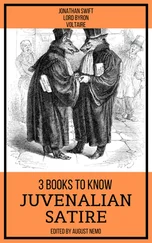‘Mr Carbury,’ she said, ‘mamma is so unhappy!’
‘I fear that I have offended her.’
‘It is not that, but that you should be so — so angry about Felix.’
‘I am vexed with myself that I have vexed her — more vexed than I can tell you.’
‘She knows how good you are.’
‘No, I’m not. I was very bad just now. She was so offended with me that she talked of going back to London.’ He paused for her to speak, but Hetta had no words ready for the moment. ‘I should be wretched indeed if you and she were to leave my house in anger.’
‘I do not think she will do that.’
‘And you?’
‘I am not angry. I should never dare to be angry with you. I only wish that Felix would be better. They say that young men have to be bad, and that they do get to be better as they grow older. He is something in the city now, a director they call him, and mamma thinks that the work will be of service to him.’ Roger could express no hope in this direction or even look as though he approved of the directorship. ‘I don’t see why he should not try at any rate.’
‘Dear Hetta, I only wish he were like you.’
‘Girls are so different, you know.’
It was not till late in the evening, long after dinner, that he made his apology in form to Lady Carbury; but he did make it, and at last it was accepted. ‘I think I was rough to you, talking about Felix,’ he said — ‘and I beg your pardon.’
‘You were energetic, that was all.’
‘A gentleman should never be rough to a lady, and a man should never be rough to his own guests. I hope you will forgive me.’ She answered him by putting out her hand and smiling on him; and so the quarrel was over.
Lady Carbury understood the full extent of her triumph, and was enabled by her disposition to use it thoroughly. Felix might now come down to Carbury, and go over from thence to Caversham, and prosecute his wooing, and the master of Carbury could make no further objection. And Felix, if he would come, would not now be snubbed. Roger would understand that he was constrained to courtesy by the former severity of his language. Such points as these Lady Carbury never missed. He understood it too, and though he was soft and gracious in his bearing, endeavouring to make his house as pleasant as he could to his two guests, he felt that he had been cheated out of his undoubted right to disapprove of all connection with the Melmottes. In the course of the evening there came a note — or rather a bundle of notes — from Caversham. That addressed to Roger was in the form of a letter. Lady Pomona was sorry to say that the Longestaffe party were prevented from having the pleasure of dining at Carbury Hall by the fact that they had a house full of guests. Lady Pomona hoped that Mr Carbury and his relatives, who, Lady Pomona heard, were with him at the Hall, would do the Longestaffes the pleasure of dining at Caversham either on the Monday or Tuesday following, as might best suit the Carbury plans. That was the purport of Lady Pomona’s letter to Roger Carbury. Then there were cards of invitation for Lady Carbury and her daughter, and also for Sir Felix.
Roger, as he read his own note, handed the others over to Lady Carbury, and then asked her what she would wish to have done. The tone of his, voice, as he spoke, grated on her ear, as there was something in it of his former harshness. But she knew how to use her triumph. ‘I should like to go,’ she said.
‘I certainly shall not go,’ he replied; ‘but there will be no difficulty whatever in sending you over. You must answer at once, because their servant is waiting.’
‘Monday will be best,’ she said; ‘— that is, if nobody is coming here.’
‘There will be nobody here.’
‘I suppose I had better say that I, and Hetta — and Felix will accept their invitation.’
‘I can make no suggestion,’ said Roger, thinking how delightful it would be if Henrietta could remain with him; how objectionable it was that Henrietta should be taken to Caversham to meet the Melmottes. Poor Hetta herself could say nothing. She certainly did not wish to meet the Melmottes, nor did she wish to dine, alone, with her cousin Roger.
‘That will be best,’ said Lady Carbury after a moment’s thought. ‘It is very good of you to let us go, and to send us.’
‘Of course you will do here just as you please,’ he replied. But there was still that tone in his voice which Lady Carbury feared. A quarter of an hour later the Caversham servant was on his way home with two letters — the one from Roger expressing his regret that he could not accept Lady Pomona’s invitation, and the other from Lady Carbury declaring that she and her son and daughter would have great pleasure in dining at Caversham on the Monday.
The Bishop and the Priest
––––––––

The afternoon on which Lady Carbury arrived at her cousin’s house had been very stormy. Roger Carbury had been severe, and Lady Carbury had suffered under his severity — or had at least so well pretended to suffer as to leave on Roger’s mind a strong impression that he had been cruel to her. She had then talked of going back at once to London, and when consenting to remain, had remained with a very bad feminine headache. She had altogether carried her point, but had done so in a storm. The next morning was very calm. That question of meeting the Melmottes had been settled, and there was no need for speaking of them again. Roger went out by himself about the farm, immediately after breakfast, having told the ladies that they could have the waggonette when they pleased. ‘I’m afraid you’ll find it tiresome driving about our lanes,’ he said. Lady Carbury assured him that she was never dull when left alone with books. Just as he was starting he went into the garden and plucked a rose which he brought to Henrietta. He only smiled as he gave it her, and then went his way. He had resolved that he would say nothing to her of his suit till Monday. If he could prevail with her then he would ask her to remain with him when her mother and brother would be going out to dine at Caversham. She looked up into his face as she took the rose and thanked him in a whisper. She fully appreciated the truth, and honour, and honesty of his character, and could have loved him so dearly as her cousin if he would have contented himself with such cousinly love! She was beginning, within her heart, to take his side against her mother and brother, and to feel that he was the safest guide that she could have. But how could she be guided by a lover whom she did not love?
‘I am afraid, my dear, we shall have a bad time of it here,’ said Lady Carbury.
‘Why so, mamma?’
‘It will be so dull. Your cousin is the best friend in all the world, and would make as good a husband as could be picked out of all the gentlemen of England; but in his present mood with me he is not a comfortable host. What nonsense he did talk about the Melmottes!’
‘I don’t suppose, mamma, that Mr and Mrs Melmotte can be nice people.’
‘Why shouldn’t they be as nice as anybody else? Pray, Henrietta, don’t let us have any of that nonsense from you. When it comes from the superhuman virtue of poor dear Roger it has to be borne, but I beg that you will not copy him.’
‘Mamma, I think that is unkind.’
‘And I shall think it very unkind if you take upon yourself to abuse people who are able and willing to set poor Felix on his legs. A word from you might undo all that we are doing.’
‘What word?’
‘What word? Any word! If you have any influence with your brother you should use it in inducing him to hurry this on. I am sure the girl is willing enough. She did refer him to her father.’
Читать дальше













